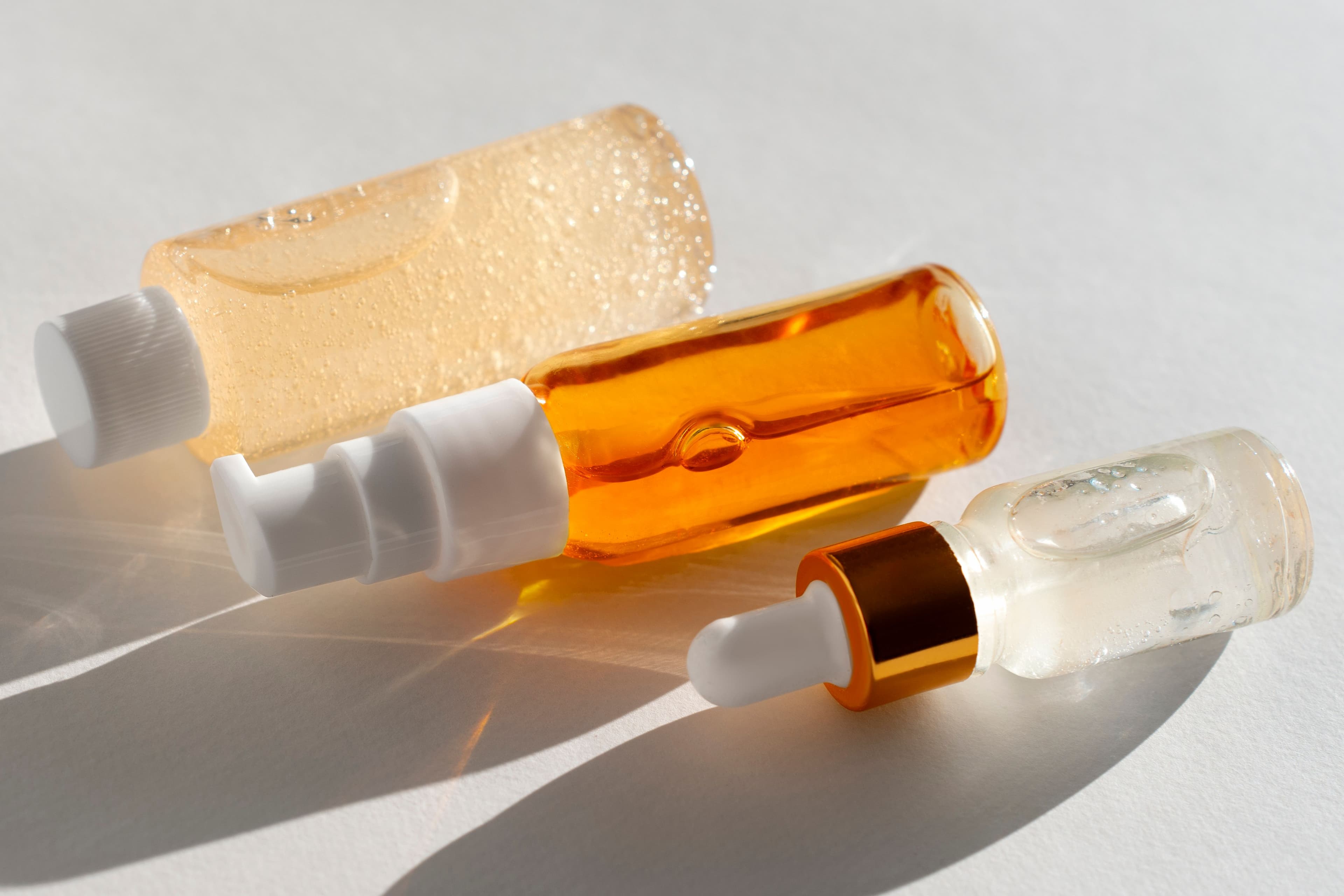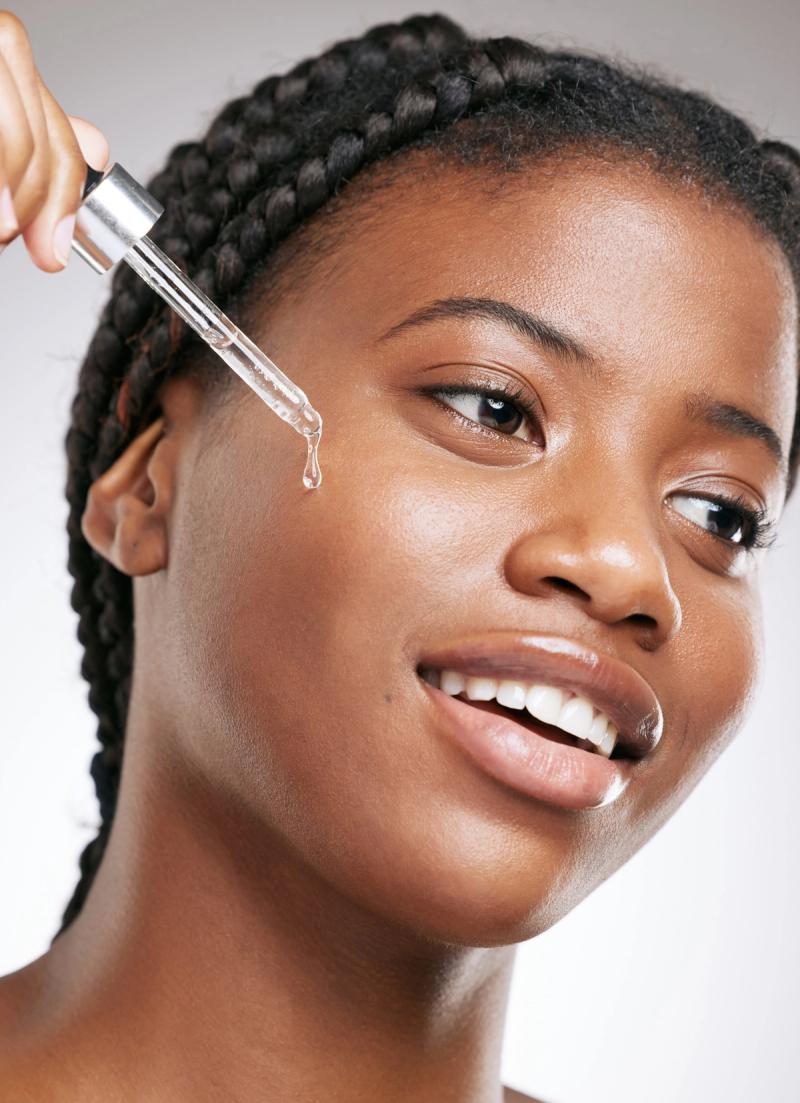The Difference Between Serums, Toners, and Essences
Publish Date: Jun 18, 2025 • Written by: Marketing

If you're new to skincare and are confused by the numerous products that there are or maybe you're staring at your friend’s skincare products wondering what the difference between a serum, toner, or essence is, well, you're not alone. These products look similar and claim to transform your skin. But each one plays a very specific role in your routine, and understanding the difference might be exactly what you need to begin to see changes in your skin’s health.
If you’ve been trying to build a routine, knowing the products and the differences between them is essential. In this article, let's discuss what these products are, why they're different, how they benefit your skin, and why it is an essential part of your daily skincare routine. Let’s break it all down in simple, clear terms so you can make the best choices for your skin.
What Is a Toner?
A toner is your skin’s prep step. After cleansing, your skin's pH may be off balance, especially if you use a foaming or harsh cleanser. That’s where toners come in.
Previously, toners used to be alcohol-based, but they turned out to be bad for the skin because they caused skin dryness. In recent times, natural, water-based toners have not been essential products that are part of the skin care regimes of a lot of skincare enthusiasts. They are obtained through the steam distillation of flowers and other ingredients proven to be good for our skin.
What It Does:
Trust us when we say a toner can work wonders for your skin. It can help to:
- Restore your skin’s natural pH (around 5.5)
- Thoroughly clean and close your pores;
- Remove leftover dirt, makeup, or cleanser residue
- Remove any last traces of excess oil, make-up, and dirt;
- Minimize the appearance of pores
- Prepare your skin to absorb better, the products that follow
Key Ingredients to Look For:
- Witch hazel (tightens pores and reduces inflammation)
- Hyaluronic acid (for skin hydration)
- Niacinamide (strengthens the skin barrier and helps to even out skin tone.)
- Rose water (balances skin pH), etc
Pro Tip:
For oily or acne-prone skin, opt for toners with properties like salicylic acid. If you have dry or sensitive skin choose alcohol-free formulas with calming botanicals.
What Is an Essence?
Essences are very common in Korean and Japanese skincare, but they’re also becoming more popular in Nigerian beauty routines. Also known as face essence, it is used as a hydrating and nourishing layer that delivers active ingredients deeper into the skin.
What It Does:
An essence is considered a hydrating primer, applying between cleansing and toner, and it helps to:
- Hydrate the skin
- Enhance skin cell turnover
- Boost the effectiveness of your serum or moisturizer
- Improve the absorption of other products
Essences are lighter than serums but more concentrated than toners. They usually contain fermented ingredients, antioxidants, and humectants that help restore your skin’s glow.
Key Ingredients to Look For:
- Fermented yeast or rice extracts (for brightening)
- Glycerin or hyaluronic acid (for moisture)
- Green tea or lotus extract (for antioxidants)
What Is a Serum?
Serums are high-performance treatments, gel-like skincare products designed to target specific skin concerns like dark spots, wrinkles, acne, or skin dullness. Serums are typically applied after cleansing and toning, and before moisturizing, allowing the active ingredients to penetrate deeply into the skin and deliver targeted results.
They contain a very high concentration of active ingredients compared to toners and essences.

What It Does:
- Delivers targeted ingredients deep into the skin
- Improves fine lines, pigmentation, and texture
- Treats issues like acne, dryness, or uneven tone
A study published in the Journal of Cosmetic Dermatology found that using a vitamin C serum daily can reduce pigmentation and improve skin firmness in as little as 12 weeks.
Key Ingredients to Look For:
- Vitamin C (for brightening)
- Retinol (for anti-aging)
- Niacinamide (for pores and tone)
- Peptides and ceramides (for barrier repair)
Toner vs Essence vs Serum: The Real Difference
Product
Texture
Primary Purpose
Use Case
Toner
Watery
Preps skin and restores pH.
Right after using a cleanser.
Essence
Slightly Viscous
Hydrates the skin and enhances skin absorption.
Right after using the toner.
Serum
Thicker and more concentrated
Treats specific skin issues.
Right after essence (or toner, if you skip essence).
So, Do You Need All Three?
Not necessarily. It depends on your skin goals.
- If your skin feels tight or dry after cleansing, use a toner and essence.
- If you’re treating dark spots or fine lines: Don’t skip the serum.
- If you want a simple routine: Use a hydrating toner and a multi-tasking serum.
According to Erno Laszlo skincare experts, layering all three can significantly improve hydration, elasticity, and glow, but your skincare routine should still feel realistic and sustainable for you.
How to Layer Them in Your Routine
- Cleanser — remove dirt and other impurities from the skin's surface
- Toner – refreshes and balances the skin
- Essence – hydrates and boosts absorption in the skin pores
- Serum targets issues like aging or pigmentation
- Moisturizer — increases the water content in the outermost layer of skin
- Sunscreen
Final Thoughts
Knowing the difference between toner, essence, and serum isn’t just for beauty buffs. It’s about giving your skin exactly what it needs to thrive.
Start with your skin goals. Are you looking for hydration? Brightening? Anti-aging? Once you’re clear on that, it’s easier to pick the right combo. And remember, the best skincare routine is the one you’ll stick to.
If you’re looking for dermatologist-approved skincare products in Nigeria, Beyond Medplus is your go-to pharmacy. You’ll find everything from top-rated toners to very effective serums — all tested and approved, and safe for your skin.